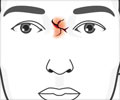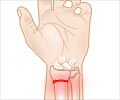HIV-infected patients are at a significantly higher risk of bone fractures, according to new study to be published in the Journal of Clinical Endocrinology and Metabolism (JCEM).
The Journal of Clinical Endocrinology and Metabolism (JCEM) has published a new study which claims the HIV infection puts patients at a considerably higher risk of bone fractures.
“Previous studies had indicated towards reduced bone density among HIV-infected patients but not much was known about patients being more prone to fractures", said Dr. Steven Grinspoon, M.D., of Massachusetts General Hospital in Boston and lead author of the study."These data are the first to suggest that there is a clinically significant increase in bone fractures among HIV-infected patients, using data from a large healthcare system," he added.
In the study, researchers analyzed data from the Partners HealthCare System, which includes two primary hospitals, Brigham and Women's Hospital and Massachusetts General Hospital.
They studied fracture diagnoses from 1996 to 2008 in 8,525 HIV-infected patients and more than 2 million non HIV-infected patients. Dr. Grinspoon and his colleagues found that overall fracture prevalence increased more than 60 percent in HIV-infected patients versus non HIV-infected patients.
The data in this study showed HIV-infected patients had a significantly higher prevalence of vertebral, hip, wrist, and combined fractures compare to non HIV-infected patients.
Within both sexes, fracture prevalence was higher in HIV-infected patients for the majority of sites assessed, across age categories.
Advertisement
Therefore, as the HIV-infected population ages, reduced bone mineral density and increased fracture risk may become an even greater problem.
Advertisement
"Further research is needed into the mechanisms of bone loss in this population," added Dr. Grinspoon.
Source-ANI
TAN/L













